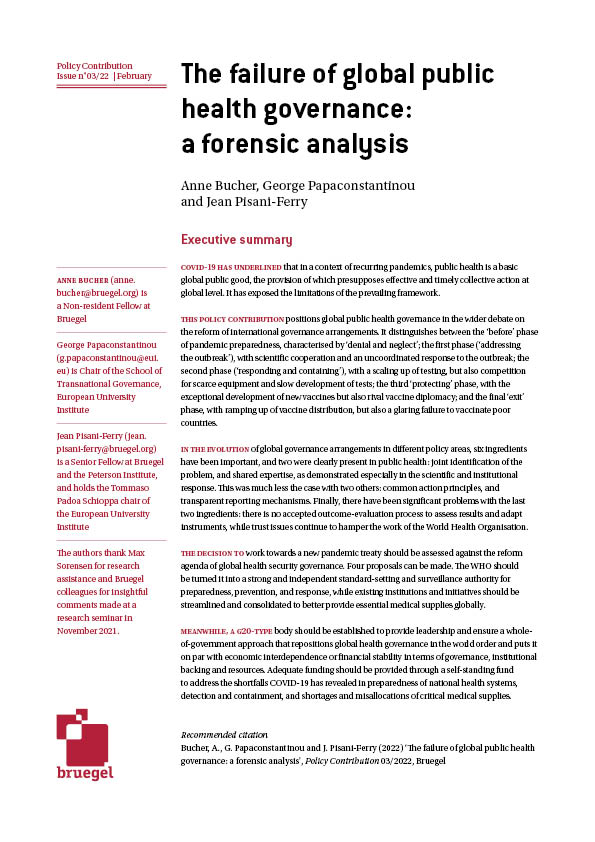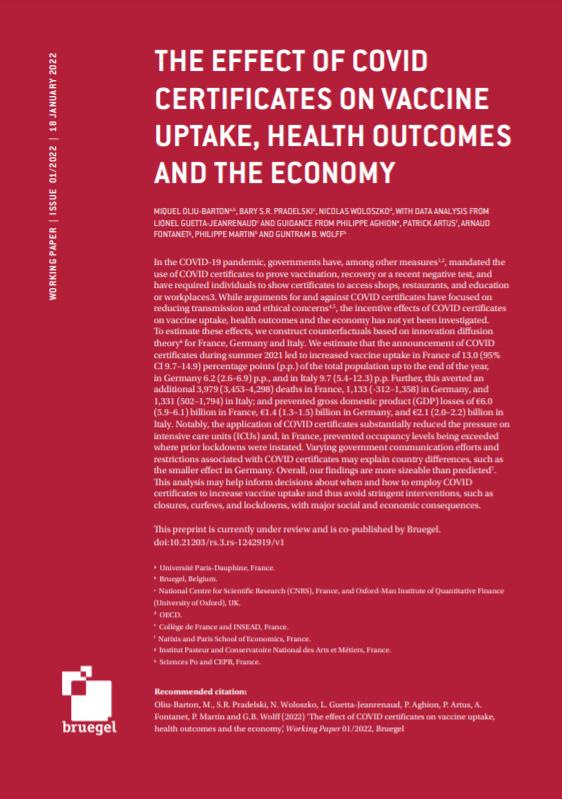Opinion
Why has the EU been so slow to roll out a Covid vaccination programme?
Europe was not prepared for the pandemic, but it must now learn lessons and use all its financial and political resources.
For the European Union, the rapid rollout of Covid-19 vaccines is critical to save lives and prevent health services from being stretched beyond their limits, not to mention minimising the massive economic damage from lockdowns. Unfortunately, however, though vaccinations are under way, a rapid near-term increase in infections is likely as the British variant of the virus spreads across the continent.
The problem for the EU is compounded because its vaccination programme already trails Israel, the UK and the US. The best performing EU country, Denmark, has vaccinated a meagre 3.6 people per 100, compared with 45 in Israel and more than 10 in the UK. Germany and France are even further behind. More worryingly, there are no signs that the vaccination rate in the EU is accelerating, unlike in the UK and US, where daily vaccination rates have increased substantially in the past few weeks.
The European commission and European leaders have recognised the need for rapid action. The commission intends to have 80% of those over 80 and the same percentage of health workers in the EU vaccinated by March, with 70% of the adult population vaccinated by the summer. Acceleration of the vaccination campaign is now the EU’s number one priority.
Why is the EU lagging behind? The central issue is not so much the organisational issues, but the lack of vaccines. Even Denmark has had to slow down its campaign significantly because of short supply. Many countries now report fully operational vaccine centres but insufficient vaccines. As always in such complex issues, there is no single answer as to why this is happening.
Part of the explanation is that the EU ordered too few vaccines too late. It was slow to order the BioNTech-Pfizer vaccine, even when it became the frontrunner and its efficacy had been documented. Member states hesitated to ask the EU to order more because of the novelty of the technological approach, and the commission leadership did not push hard enough for additional purchases.
Purchases were slowed down further as the EU insisted that liability in case of negative side-effects on health remains with pharma companies and therefore rejected early emergency authorisation. Many EU countries neither wanted nor asked for faster authorisation because of this liability issue. Pros and cons can be debated, but risk aversion in many EU countries is a fact. Anti-vaccination movements may have also added pressure on political decision-makers.
EU funding has also proven insufficient. Last year’s EU vaccine strategy allocated €2.7bn for advance purchase agreements, research and capacity. This was increased by €1.09bn in September. But these numbers are small compared with the $18bn the US provided through its “Operation Warp Speed”. Low EU purchase prices per vaccine might have further slowed down deliveries.
In recent days, there has been a debate about whether some pharma companies have breached the terms of the contracts with the EU. The EU has pre-financed the development and the production of the AstraZeneca vaccine and wants to now know exactly which doses have been produced and where, so it can assess whether contractual obligations are breached. An export transparency mechanism is being used as a threat to ensure that contractual obligations are fulfilled in case of breach of the contract. But AstraZeneca’s CEO has pointed out that the UK signed its contract three months before the EU and the UK factory also started operating earlier, increasing supply capacity. Moreover, according to AstraZeneca, its contract with the EU does not oblige early deliveries. Only publication of the contract can allow outsiders to judge this spat.
There is an argument that the EU was slow to develop an industrial strategy to increase production. The factories of competitors should have been mobilised as soon as possible to increase the total supply of vaccines. Sanofi has now agreed to use its factory in Frankfurt to produce additional BioNTech-Pfizer vaccines. The former Novartis factory in Marburg, Germany, will soon produce vaccines in large amounts. Why did governments not push earlier for more such agreements and increase financial resources to make them profitable for companies?
Last, the EU was not prepared for the pandemic. Only once it was under way did EU countries authorise the commission to start joint purchases. The US had institutions such as the Biomedical Advanced Research and Development Authority supporting research as early as February 2020. Building a racing machine only when the race has started means delays.
It is impossible to say how things would have gone if there had not been joint EU action. It seems safe to say that many EU countries would not have been able to negotiate faster vaccine deliveries with pharma companies. It also seems fair to say that the pressure from the Trump administration on pharma companies to deliver for the US market first was huge and EU countries individually would have had less leverage. Moreover, the politics of vaccine nationalism within the EU would have been toxic.
But the EU must now learn lessons. It needs institutions comparable with those of the US to deal with such situations. The commission’s initiative to boost the European Health Emergency Response Authority is to be supported. EU citizens should decide how much risk they are willing to take when it comes to vaccine authorisation and liability, and leaders should provide more financing for vaccine development and procurement. For now, the EU’s priority must be to mobilise all financial and political resources to increase vaccine supplies.
Republishing and referencing
Bruegel considers itself a public good and takes no institutional standpoint.
Due to copyright agreements we ask that you kindly email request to republish opinions that have appeared in print to [email protected].













